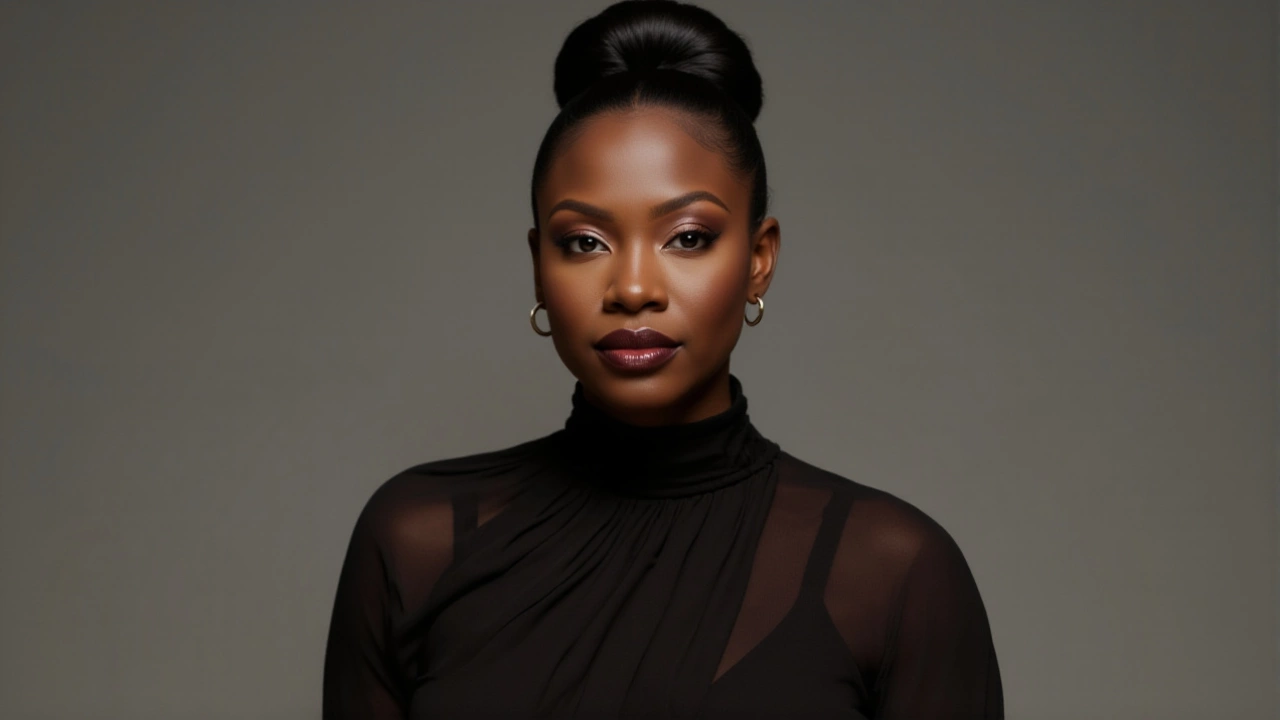When Kandi Burruss stepped into the producer’s chair for the Broadway revival of 'Joe Turner's Come and Gone'New York City, she didn’t just add another credit to her resume—she helped launch a cultural moment. The Grammy-winning singer, reality TV star, and seasoned theater producer announced on October 29, 2025, that she’s joining forces with producer Brian Anthony Moreland to bring August Wilson’s 1988 Pulitzer Prize-winning drama back to the Great White Way. At the center of this revival? Taraji P. Henson, making her long-awaited Broadway stage debut as Bertha Holly, and Cedric 'The Entertainer', returning to Broadway after 17 years as Seth Holly. The production, directed by Debbie Allen, will open in spring 2026 at a theater owned by The Shubert Organization, with the exact venue still to be revealed.
From Reality TV to the Broadway Stage
Kandi Burruss isn’t your typical Broadway producer. Best known for her sharp tongue and high-stakes drama on The Real Housewives of Atlanta, she’s quietly built one of the most impressive producing résumés in contemporary theater. This marks her fifth Broadway credit, following her work on Othello, The Wiz, and most recently, Wilson’s own The Piano Lesson—a production that earned her the Drama League’s 2024 Gratitude Award. "I’m thrilled to be joining the producing team of Joe Turner’s Come and Gone," she said in a statement. "I can’t wait for people to witness the greatness that is Taraji P. Henson and Cedric 'The Entertainer' on the Broadway stage." Her journey from Xscape’s 1990s R&B hits to Broadway boardrooms is a testament to her versatility. She made her onstage Broadway debut in 2017, stepping into the role of Roxie Hart in Chicago after replacing another actress. That’s not the kind of career path most expect from a reality TV star—but then again, Burruss has never followed expectations.A Landmark Debut for Taraji P. Henson
While Taraji P. Henson has been a powerhouse on screen—earning Oscar, Emmy, and Tony nominations for her work in film and television—she’s never set foot on a Broadway stage… until now. Her casting as Bertha Holly, the warm, grounding matriarch of a Pittsburgh boarding house during the Great Migration, is more than just a star turn. It’s a homecoming for a performer whose emotional depth has always felt theatrical. Henson was previously nominated for a Tony as a producer of Jaja’s African Hair Braiding in 2024, but this is her first time acting on Broadway. The role demands nuance: Bertha is both a pillar of strength and a woman haunted by loss, a quiet force holding together a household of displaced souls.Cedric’s Return and the Legacy of August Wilson
Cedric 'The Entertainer' last appeared on Broadway in 2008’s American Buffalo, and his return signals a deliberate shift in his career. Known for his booming laugh and comedic timing, he’s now stepping into the role of Seth Holly, a stern but deeply principled boarding house owner. Seth’s conflict with the wandering protagonist, Herald Loomis, drives the play’s emotional core. This isn’t just another role—it’s a chance to show audiences the range he’s long been capable of. Joe Turner’s Come and Gone is the second play in August Wilson’s ten-part Pittsburgh Cycle (also called the American Century Cycle) to hit Broadway this season, following the critically acclaimed revival of The Piano Lesson. Set in 1911, the play unfolds in a Pittsburgh boarding house where Black migrants, fleeing the South after emancipation, search for identity, belonging, and healing. At its heart is Herald Loomis, a man searching for his wife and the self he lost during seven years of illegal enslavement under Joe Turner. Spiritual forces stir, memories erupt, and the past refuses to stay buried. The original 1988 Broadway production, directed by Lloyd Richards, ran for 105 performances and featured Angela Bassett and Delroy Lindo. A 2009 revival at the Belasco Theatre earned four Tony nominations and a Best Featured Actor win for Roger Robinson. Now, with a new generation of talent and a producer like Burruss—whose fingerprints are already on two Wilson plays this season—the play feels newly urgent.
What This Means for Broadway
This revival arrives at a pivotal moment. After years of Broadway leaning heavily on jukebox musicals and film adaptations, audiences are hungry for authentic, historically rooted stories. Wilson’s work, with its poetic language and unflinching look at Black American life, has never been more relevant. The fact that two of his plays are running concurrently on Broadway this season—The Piano Lesson and now Joe Turner’s Come and Gone—signals a deliberate institutional commitment to his legacy. And Burruss? She’s not just producing. She’s reshaping who gets to tell these stories. Her involvement brings visibility to Black women producers in a space still dominated by white male gatekeepers. Her success proves that star power from television can translate into cultural influence on stage—and that the theater is becoming more inclusive, not just in casting, but in leadership.What’s Next?
Casting for the revival is being handled by ARC Casting, and the full creative team—including set designer, costume designer, and lighting director—will be announced in the coming months. Rehearsals are expected to begin in January 2026, with previews starting in March. The production will run through the summer, likely extending into fall if ticket demand holds. The timing is no accident. With the 2026 centennial of the Great Migration’s peak approaching, and a growing national conversation about racial identity and historical trauma, this revival couldn’t be more timely. For audiences, it’s not just theater—it’s a mirror.Frequently Asked Questions
Why is Taraji P. Henson’s Broadway debut such a big deal?
Taraji P. Henson has won an Emmy, been nominated for an Oscar, and produced a Tony-nominated play—but she’s never performed on Broadway. Her casting as Bertha Holly breaks a major barrier for film and TV stars who’ve long avoided the stage due to perceived risk. Her emotional range and screen presence suggest she’ll bring a new intensity to Wilson’s text, potentially drawing in audiences who rarely attend live theater.
How does Kandi Burruss’s involvement change the production’s profile?
Burruss brings massive mainstream visibility. Her fanbase from The Real Housewives of Atlanta and her music career will likely translate into ticket sales and media attention beyond traditional theater audiences. More importantly, as a Black woman producer with two August Wilson plays under her belt, she’s helping shift power dynamics in an industry where producers are still overwhelmingly white and male.
What makes August Wilson’s 'Joe Turner’s Come and Gone' still relevant today?
The play explores displacement, identity loss, and spiritual reclamation—themes echoing in today’s conversations about systemic racism, migration, and healing. Herald Loomis’s search for his wife mirrors modern searches for lost family ties, while the boarding house becomes a metaphor for Black communities navigating trauma. Wilson’s poetic language and mythic structure give the story timeless power.
Is this the first time Joe Turner’s Come and Gone has been revived on Broadway?
No. The play premiered on Broadway in 1988 and was revived in 2009 at the Belasco Theatre, running for 69 performances. That revival earned four Tony nominations and a win for Roger Robinson as Best Featured Actor. The 2026 production will be the third major Broadway staging, and the first led by a Black woman producer since the original.
Why is The Shubert Organization’s involvement significant?
The Shubert Organization owns or operates 17 Broadway theaters—including the Majestic, the Ambassador, and the Lyceum. Their backing signals institutional confidence in the project’s commercial and artistic potential. Their involvement often means higher production values and longer runs, which increases the likelihood this revival will become a cultural touchstone.
What’s the connection between this revival and The Piano Lesson?
Both are part of August Wilson’s ten-play Pittsburgh Cycle, each set in a different decade of the 20th century. Kandi Burruss produced the 2024 revival of The Piano Lesson, and now she’s producing this one. Their back-to-back runs suggest a deliberate effort to spotlight Wilson’s legacy, with Joe Turner’s Come and Gone continuing the exploration of Black identity, trauma, and resilience in America.
